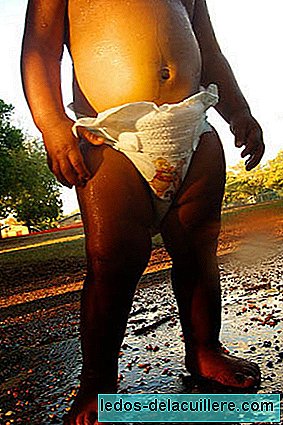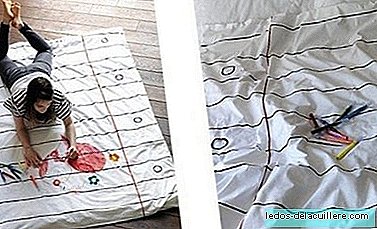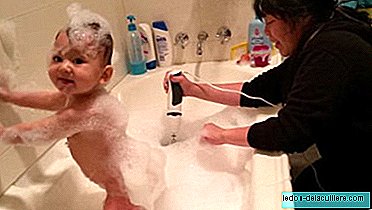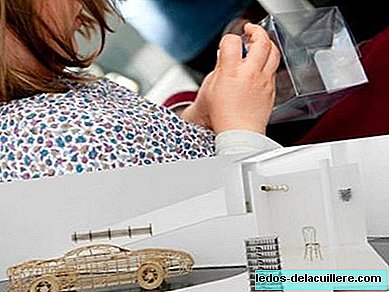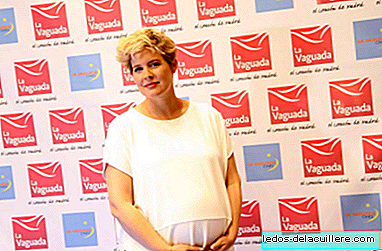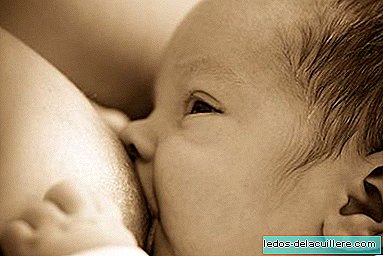
Undoubtedly, raising awareness about the value of breastfeeding is important, but it is also important to offer women real resources to help them if Your baby rejects the breast.
Babies are born prepared and naturally programmed to be breastfed. And women can, except in a very small part of cases for medical reasons, fully breastfeed. However, despite the awareness campaigns, there are still many babies who are not breastfed despite their mothers' desire and efforts.
We are not usually prepared or trained for this circumstance, we do not know well how to act and that entails a lot of premature weaning. The reality is that yes the baby rejects the chest There are techniques and strategies that allow you to recover breastfeeding and resolve the crisis.
Living this situation also involves a very hard emotional burden for moms and their babies, but that sense of despair can be lessened if we know how to understand what is happening and we know how to act to solve it. Let's see what causes can cause breast rejection and how to overcome breastfeeding and maintain milk production.
Causes why a baby can reject the breast
You have to think that when a baby rejects the breast is that it is going through some difficulty that interferes with breastfeeding, a difficulty that is sometimes evident but that others are difficult to interpret.
Rejection may appear at the beginning of breastfeeding, when the baby is "learning" to breastfeed, or it may appear even later, when breastfeeding seemed properly established and the baby was breastfed effectively and at some time.
Possible causes of problems in the first round
The pain It may be a cause that we are not able to detect in newborns. An injury at birth can cause you to hurt when you breastfeed, because of the force you must do with your muscles. These lesions do not have to be serious to produce pain, and would be more frequent in instrumental, problematic births or in premature babies. They can range from a clavicle rupture that, if detected, to bruises or muscle clamps or vertebrae.
If the baby has any respiratory distress This can cause swallowing to cause more problems, so it will not suck properly.
In addition, if the window period of the hour after birth has been interfered by separating the child from the mother, preventing the first teat immediately after birth or, worse, if bottles or pacifiers have been given, they can cause rejection of the chest for having lost the correct reflex of suction.
Also the mucosal aspiration, which continues to be carried out in more cases than is strictly necessary, can damage the mucosa or be lived as a violent event that causes fear and harm to the child, causing him not to feel comfortable putting anything in his mouth.
Premature babies
PrematurityEven with 37 or 38 weeks, it can cause the baby not to have the ability or strength to suck effectively. Even if in the first shots there seems to be an effective breastfeeding as the days go by, the child may not be able to produce and suck enough milk, so he will be hungry, he will feel less strong and more frustrated before the chest.
If with your own resources you do not get enough milk you will have to look supplementation strategies that do not interfere with breastfeeding and increase the amount of milk available, so that, when the child is ready, he can recover breastfeeding directly with the right supply. Bottles are not the best solution for this, as we will see later.
Suction Confusion
Quite often it happens that the child prefers the most common form of feeding or the one that has been given first. This, when bottles or pacifiers are introduced before breastfeeding is established, often causes a confusion in suction, since neither the nipple shape and the nipple are the same, nor is the suction technique that the child should use.
For this reason, the bottles and pacifiers of the neonatal units must be banished, and only supplements with compatible techniques for breastfeeding and in medically necessary cases should be offered, in order to avoid the confusion that would frustrate the attempt to breastfeed thereafter. exclusive
If we have given a bottle we can find that the child does not know how to breastfeed or does not want to do it when we offer the breast.
Conclusion
The problems we have talked about are overcome, as we will see, with appropriate strategies and support, however, unfortunately, they are still the usual causes of premature weaning.
The mothers end up thinking that they did not have enough milk, that their milk was bad or worse, that their son refused to breastfeed, in some cases the situation was experienced as something very distressing that the mother perceives almost as a rejection of her, finding Artificial breastfeeding is the solution to both your child's poor diet and emotional disturbance.
The hypolactia Really, it is hardly relevant in a number of cases and its causes are medical, usually thyroid-linked hormonal problems sometimes not detected. Reversible hypolactia can sometimes be caused by emotional reasons, but it is easily recoverable, and the others are, in almost all cases, due to a solvable or faulty suction solvable.
For those who went through it and for those who may encounter these problems in the future I will explain others causes why a baby can reject the breast and above all, the methods to help overcome these crises and continue breastfeeding.





